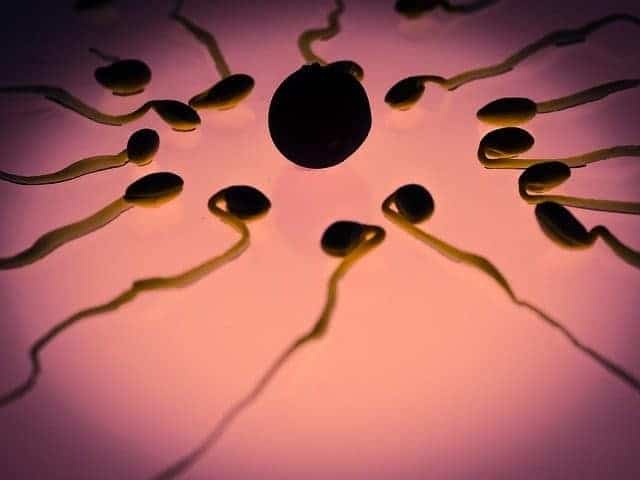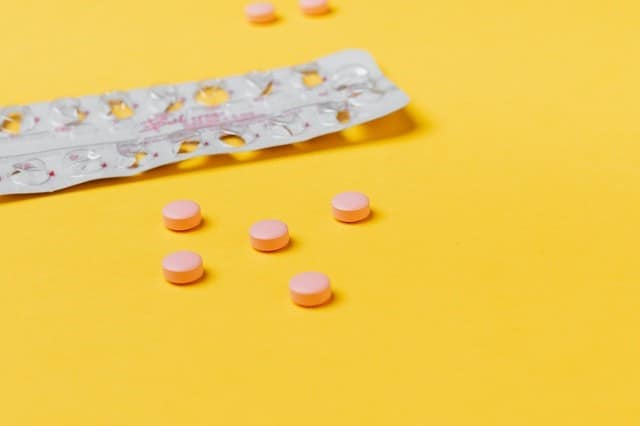Intrauterine insemination (IUI) is a medical procedure that treats infertility. The process is simple and takes only a few minutes to complete, and is relatively pain-free. During or after the IUI treatment, many women experience mild cramping. This is a common symptom and should go away after a day or two.
Cramping after IUI can happen due to a variety of reasons. Some women experience mild cramps as a result of irritation caused by the catheter in the uterus. Another reason can be ovulation. Cramps that occur a few days after the IUI procedure may also signal implantation or that your period is coming. Aside from cramping, many women also report light spotting and vaginal discharge a few days after the procedure.
IUI is usually timed so that ovulation takes place shortly after the artificial insemination. This article will explore the common symptoms to expect after IUI, as well as the use of pain relievers, the associated risks, and some post-procedure instructions.
What is IUI?

IUI is a treatment for fertility that involves injecting sperms directly into a woman’s uterus. Its goal is to increase the number of sperms that reach the egg and subsequently encourage fertilization. However, it still requires a sperm to reach and fertilize the egg on its own.
IUI is a painless and non-invasive technique that is cheaper than In vitro fertilization (IVF). With the help of an instrument, called a speculum, a catheter is inserted through the vagina. The best viable sperms are then brought near the egg to facilitate fertilization.
IUI’s success rates vary based on the cause of infertility, maternal age, and use of fertility medications. Depending on the reasons for infertility, your doctor may prescribe ovulation-inducing hormones and/or other medications. Every individual will have a unique reaction to the procedure. Women over 40 years old and those who had three failed IUI cycles have a lower likelihood of pregnancy.
Fourteen days post-procedure, women should take a pregnancy test to find out whether the treatment took effect. Results collected before the 14-day period are unreliable.
Is IUI Treatment Right for You?
IUI treatment is a good starting point for couples dealing with issues involving ovulation or unexplained infertility. The most common reasons for using IUI include decreased sperm motility or low sperm counts.
IUI can also be the fertility treatment of choice for the following conditions:
- Unexplained infertility
- Cervical mucus problems or cervical scar tissue that may prevent the sperm from entering the uterus
- Ejaculation dysfunction
- The woman is without a partner or in a same-sex relationship
- The male has a genetic defect that can be potentially passed on to the child
There are certain conditions, however, where it may not be a suitable treatment option for a couple:
- Severe disease of the fallopian tubes
- Pelvic infections
- Moderate to severe endometriosis
IUI Success Rate

The success rate of IUI treatment ranges between 8% to 30% per cycle. There are a number of factors that can influence these odds, including:
- The woman’s age
- General health and lifestyle
- Underlying infertility concerns
- Whether or not fertility drugs are used
With IUI, timing is crucial. Your doctor pinpoints the exact moment when ovulation will occur, and then inserts the sperms around that time.
Evidence shows that for women over the age of 40, the success rate tends to decrease significantly. If a woman is still not pregnant after three IUI cycles, the doctor may recommend IVF. It’s best to discuss your predicted success rate with your doctor to see if IUI is a good fertility treatment option for you.
Understanding the Procedure

From monitoring ovulation to preparing the semen and determining the optimal timing, IUI involves meticulous coordination.
Ovulation-stimulating medications may be used. Then careful monitoring will be done to observe when the eggs will mature. IUI procedure will be done 24-36 hours after the surge in luteinizing hormone, signaling that ovulation is about to occur soon.
During IUI, your doctor will deposit sperms attached to a thin, pin tip-sized catheter directly into your uterus. Many women compare the experience to that of having a Pap smear test. There is no medication or pain reliever required during IUI. After the procedure, you may need to lie on your back for a brief period (about 20 minutes). In most cases, you can just go about your normal daily activities post-IUI.
Symptoms to Expect After IUI

Following the IUI treatment, you’ll need to wait two weeks for a follow-up check-up to find out whether or not the procedure was successful. During this waiting period, you may experience the following symptoms:
Cramping
The majority of women encounter mild uterine cramping during or after an IUI treatment. It is a typical symptom and, in most cases, should not be a cause of worry.
During the procedure, the cramping usually occurs as the catheter is being passed through the cervix, and while the vial of sperm samples is injected. This is only temporary and should go away once the catheter is taken out.
Cramping may also be attributed to the following reasons:
Catheter Irritation
In some cases, the catheter can irritate the woman’s uterus, which can also lead to mild cramping.
Ovulation
This natural event happens when the ovaries discharge a mature egg. During ovulation, a patient may experience abdominal spasms, which in medical term is called a “mittelschmerz.” Taking drugs that prompt ovulation of multiple follicles can also cause or aggravate cramps.
Ovulation cramping can occur within several minutes to hours. Commonly, it does not last for more than two days. Some women may have intense aching, while others may only have light pain.
Cramping from ovulation has no definite cause. However, it is associated with some factors that usually come with ovulation. This includes the stretching of the ovarian follicle and the inflammation of the stomach lining.
Implantation
Cramping a few days after IUI can signal that implantation has happened, and that the procedure was a success. Implantation occurs when a fertilized egg burrows into the uterine lining.
Women experiencing cramping due to implantation describe the sensation as pinching below the belly button. A sharp, abrupt pain in the stomach can also signify implantation.
Impending Menstrual Period
Cramps is a common premenstrual symptom. In case the IUI treatment failed to result in pregnancy, cramping a few days after the procedure can also signal that your period is coming.
Spotting
Mild spotting is another usual symptom following an IUI treatment. The light spotting may be caused by the catheter penetrating the cervix. Typically, spotting after the treatment is very light that it is unnoticeable. Unless it persists, spotting after the artificial insemination typically doesn’t pose a serious concern.
Just like cramping, spotting may also indicate implantation. However, it can also be mistaken for menstruation. The main difference between implantation and period spotting is the color. Discharge from implantation is pinkish to brownish in color instead of bright red as with menstrual blood.
Vaginal Discharge
IUI patients typically encounter vaginal discharge after the treatment. Generally, this should not cause concern because it is a usual reaction of the body.
Commonly, patients think of the discharge as sperm leakage, but this is not the case. The vaginal discharge comes from the mucus produced by the cervix. The catheter detaches the cervical mucus during treatment, making patients experience a wet sensation.
Is it Okay to Take Painkillers?

Nonsteroidal anti-inflammatory drugs (NSAIDs) can reduce IUI pain. However, doctors approve only a few types of these for IUI patients. Pain relievers may decrease the likelihood of pregnancy and heighten the chance of miscarriage. Hence, patients should avoid any analgesic, if possible.
Nonetheless, patients can ask their doctor to prescribe some medicine if the pain is not tolerable. Usually, a doctor may suggest acetaminophen instead of the common NSAIDs like aspirin and ibuprofen. Acetaminophens like Tylenol are a safer alternative for pregnant women and those who are attempting pregnancy.
What to Do After IUI

The IUI procedure typically lasts for about 10 to 15 minutes only. You may need to lie down for 10 to 20 minutes following the treatment. Here are some tips to do after undergoing an IUI.
-
Rest
Shortly after the procedure, some women can experience dizziness or spasms. Hence, some doctors suggest for a patient to lie down and take a rest for a few minutes. However, this is not mandatory, and most patients feel fine after the procedure.
Some women expect sperm leakage after IUI, and that is why they prefer to lie down after the procedure. However, there is no chance of leakage because the cervix is closed. Nevertheless, patients who feel unwell should take the time to rest and recuperate.
-
Resume Normal Activity
Generally, IUI should be quick, and is a relatively simple and safe procedure. After insemination, patients can go back to their usual day-to-day routines. However, they should still limit physically taxing activities.
-
Restrict Exercise
Patients should expect pregnancy after IUI. Hence, they should reduce any activity that can cause miscarriage. This includes strenuous workouts like cardio and high-intensity interval training (HIIT).
-
Keep Body Temperature Low
Low body temperature is more conducive to implantation. This is also one of the reasons why it’s best to avoid engaging in high-impact exercises. Therefore, women should avoid activities that may elevate their temperature. For instance, they should avoid taking hot baths or saunas. Also, they should abstain from swimming as soaking in water can increase the risk for pelvic infection.
Sex Post-IUI
IUI patients can engage in sexual intercourse after the procedure. The notion that sex can cause miscarriage is false. Some doctors even advise sexual intercourse because orgasm impels uterine contraction. This will drive the sperm closer to the egg and heighten the possibility of pregnancy.
Other doctors suggest that patients should wait 48 hours post-procedure before engaging in sex.
Risks Associated with IUI

IUI is a minimally invasive fertility treatment. Thus, serious complications associated with the procedure are low and mostly non-existent. Few risks include the following:
-
Infection
The biggest risk associated with IUI is vaginal infection. This can happen when bacteria attach to the catheter during treatment, or the semen injected is infectious. A vaginal infection may bring about inflammation, itching, and an unpleasant odor.
-
Cervical Injury
IUI can cause an injury to the cervix that can lead to spotting or vaginal bleeding and acute pain.
-
Ovarian Hyper-Stimulation Syndrome (OHSS)
In the case of medicated IUI treatment, fertility drugs such as Clomid and Letrozole may lead to hyperovulation marked by pumped-up levels of estrogen. This may cause the ovaries to swell, and symptoms include severe abdominal pain, bloating, nausea or vomiting, and breathing issues.
-
Multiple Pregnancy
Once again, when coordinated with fertility drugs, IUI significantly increases the risk of becoming pregnant with multiple babies. Multiple pregnancies are associated with a higher risk of miscarriage, gestational diabetes, low birth weight, premature delivery, and other complications at birth.
Final Thoughts
IUI is a simple, non-surgical fertility treatment that requires no pain relievers. After the procedure, you will likely be able to go about your usual daily routine.
Some women report mild cramps or discomfort and light spotting post-IUI. All these symptoms are normal, and may not occur in all patients. However, if the cramping is severe or is associated with other symptoms, including fever and abnormal vaginal discharge, you should contact your doctor immediately.
Overall, the IUI process in itself may not be difficult for the body, but the anxiety that follows can be overwhelming. Hence, you should take the time to rest and allow your body to recover.
It’s also advised to act like you are already pregnant after the procedure. Be sure to talk to your doctor about any medication you take. This way, if the artificial insemination is a success, you get the best possible start for your pregnancy.